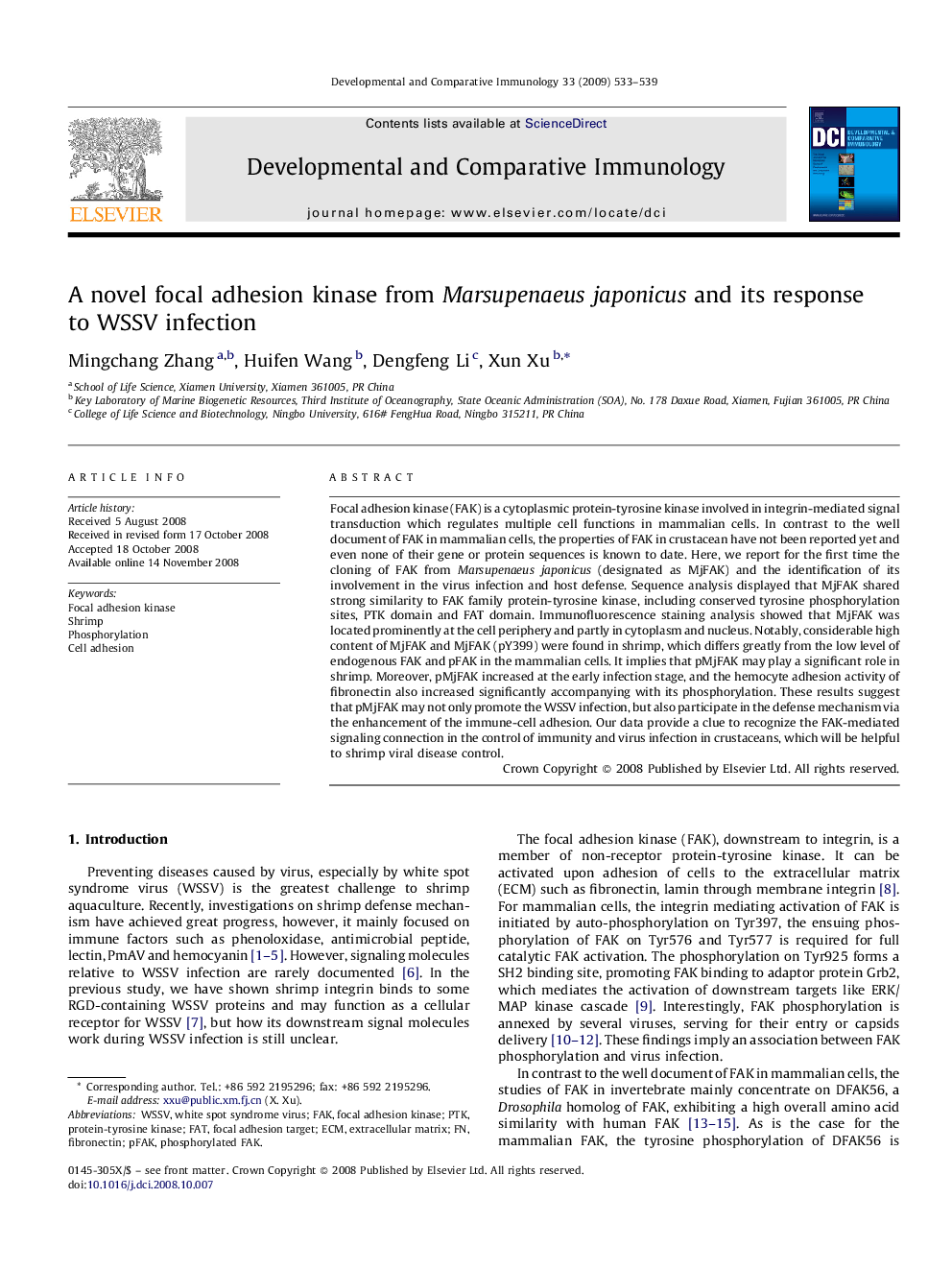| Article ID | Journal | Published Year | Pages | File Type |
|---|---|---|---|---|
| 2429738 | Developmental & Comparative Immunology | 2009 | 7 Pages |
Focal adhesion kinase (FAK) is a cytoplasmic protein-tyrosine kinase involved in integrin-mediated signal transduction which regulates multiple cell functions in mammalian cells. In contrast to the well document of FAK in mammalian cells, the properties of FAK in crustacean have not been reported yet and even none of their gene or protein sequences is known to date. Here, we report for the first time the cloning of FAK from Marsupenaeus japonicus (designated as MjFAK) and the identification of its involvement in the virus infection and host defense. Sequence analysis displayed that MjFAK shared strong similarity to FAK family protein-tyrosine kinase, including conserved tyrosine phosphorylation sites, PTK domain and FAT domain. Immunofluorescence staining analysis showed that MjFAK was located prominently at the cell periphery and partly in cytoplasm and nucleus. Notably, considerable high content of MjFAK and MjFAK (pY399) were found in shrimp, which differs greatly from the low level of endogenous FAK and pFAK in the mammalian cells. It implies that pMjFAK may play a significant role in shrimp. Moreover, pMjFAK increased at the early infection stage, and the hemocyte adhesion activity of fibronectin also increased significantly accompanying with its phosphorylation. These results suggest that pMjFAK may not only promote the WSSV infection, but also participate in the defense mechanism via the enhancement of the immune-cell adhesion. Our data provide a clue to recognize the FAK-mediated signaling connection in the control of immunity and virus infection in crustaceans, which will be helpful to shrimp viral disease control.
